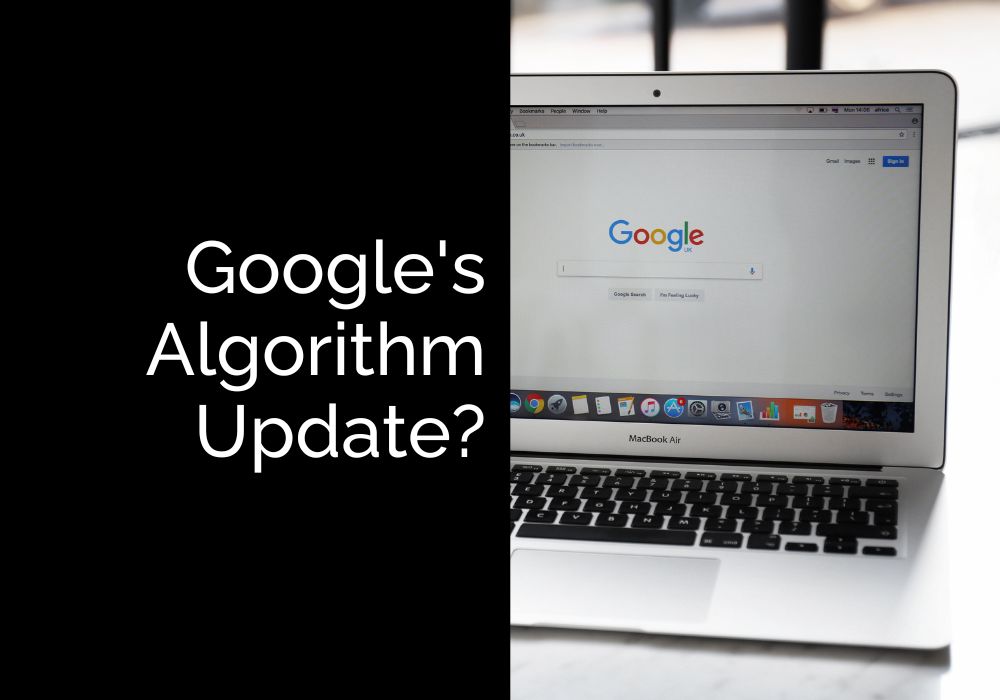Google’s Algorithm Update

Will the latest change to Google's algorithm be bad for your site?
The owners of websites are concerned about the impact that impending algorithm adjustments introduced by Google would have on the visibility of their websites. Through an awareness of the most significant criteria and the application of those aspects to increase a website’s position, SEO experts are able to assist in optimising websites for target keywords. In this way, websites are able to continue operating without being impacted by algorithm adjustments.
This article examines the possible damage that these upgrades could do as well as the impact that they have on the performance of websites.
What is an algorithm update?
Google’s search engine uses complex algorithms to rank websites and web pages based on relevance, authority, and usability. With over 200 ranking factors, Google regularly updates its algorithms to improve search results and reduce unoriginal content.
Google makes thousands of changes to its algorithm every year, often making small changes that significantly impact website ranking, creating turbulence in search engine results.
“We’re making algorithmic enhancements to our core ranking systems to ensure we surface the most helpful information on the web and reduce unoriginal content in search results.”
Some of the more recent updates include:
- RankBrain. An AI in search focus, that integrated machine learning to improve the handling of ambiguous questions and the interpretation of conversational queries.
- Medic (2018), which looked at Expertise, Authority, and Trustworthiness (E-A-T). This influenced a large number of health and wellness websites, such as chiropractic clinics and doctors, and requires content of a higher quality that displays competence and reliability.
- Bert, which looked at understanding natural language as the primary focus.
How to be resistant to these changes?
For the RankBrain update, publishing content that discusses a topic or service in enough detail should help with the handling of ambiguous questions.
For the Medic update, ensure all your service pages and blogs feature the following elements:
- Date published and last updated
- Author by-line
- Author box, which focuses on promoting the Expertise, Authority, and Trustworthiness of the health practitioner who is writing the content.
What’s the significance of the latest update?
In March 2024, Google implemented a new algorithm with the intention of reducing spam and low-quality content by as much as forty percent. Additionally, the upgrade included regulations to avoid fraudulent activities. The update specifically targeted domain abuse, low-quality spam content, websites with AI authors, and artificial intelligence-produced mass-market copy.
Because of this, some websites that host guest posts and blogs have seen a decrease in their organic traffic. This is typically the consequence of low-quality information that was generated by artificial intelligence or scraped from other websites.
When it comes to enhancing search results, Google places a strong emphasis on the need of adjusting to these changes.
Keeping your website's traffic at a high level
The severity of the vulnerability to algorithm adjustments determines the strategy that should be used when publishing new content. Those who mass produce content may be more vulnerable, while those who place a higher priority on quality are able to withstand storms at the keyword rank level.
Good copywriting, keyword optimisation, fresh material, and content that is similar to frequently asked questions are all important methods.
- If you want to boost the search engine optimisation of your website, you should put quality over quantity by generating high-quality content that provides answers to the queries and fulfils the requirements of your audience.
- You should avoid over-optimising the content and instead group relevant keywords in a natural way.
- You may maintain the freshness and relevance of your content by using longer form copy, additional lines of text, or altering messaging based on the feedback you receive from customers.
- The Frequently Asked topics (FAQs) should be published and kept up to date in order to provide prompt responses to frequently asked topics, hence decreasing stress and saving time.
A great example of a website that follows these guidelines is this Telco site.
https://www.swoop.com.au/fibre-internet-and-fttp-plans/
Take a look at how they optimise for the keyword ‘fttp plans’. It is very natural. They have published thoughtful and high quality content, they talk about the benefits of their service, and they publish clickable question and answer content at the end of the page.
The rankings of your website and the level of pleasure of your customers can both benefit from this.
Key points
- Many websites lose significant traffic, often due to AI-generated content.
- Google’s spam update removes these pages from search results and deindexes low-quality keywords.
- Google’s core ranking algorithms are being adjusted to prioritise useful information over low-quality content.
- To ensure your site remains unaffected, focus on quality content, pay for good copywriting, optimise for specific keywords and topics, keep older content updated, and post frequently asked questions (FAQ) content.
We’re reinventing the way brands have conversations with their customers.
Take a look at our Services here.


